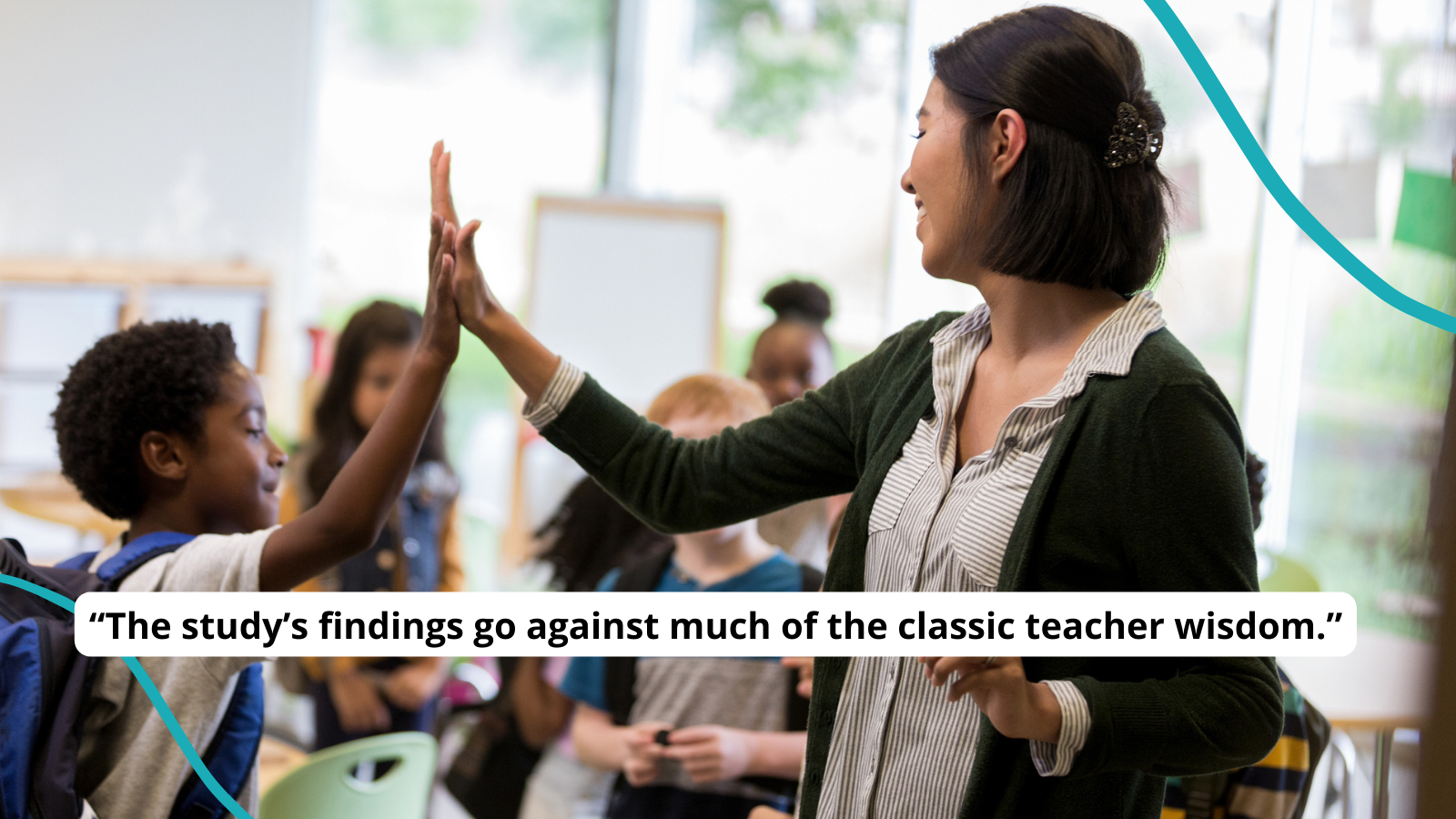Teaching is all about setting high expectations for your students, right? Well, not necessarily.
My previous principal thought I was an idiot. When she got the job, I had just won Teacher of the Year. I’d piloted a summer enrichment program that was both effective and well liked by the students. I got excellent results from tough students and was respected by my colleagues.
But that did not matter to her. She found a variety of ways to make my incompetence clear, from calling me out in staff meetings to making me watch security camera footage of my response time to a recess soccer injury. (Nineteen seconds. But in her words, “It felt longer.”)
She talked a lot about how high her expectations were for both students and teachers … and she experienced almost 50% teacher turnover her first year.
But I’m not here to write about how terrible my old boss was. I’m writing to provide scientific proof that she was terrible.
In 2013, Harvard Business Review published a study about how a boss’s evaluation impacts employees. They looked at 360 employers, then focused on the extremes, the 50 who gave the most positive reviews and the 50 who gave the lowest reviews of their employees’ performance. Presumably the employees at both companies showed a standard bell curve of competence—it was the bosses’ rating scale that differed.
The results will surprise approximately nobody. The employees of the bosses who rated everyone higher were more engaged, more confident, and happier at work. The lower-rating bosses had employees who reported feeling confused and demoralized.
The results went beyond positive feelings and self-confidence, though. The study also analyzed information from peers, associates, and subordinates of the employees who got high or low ratings. The employees of the “grade inflation” bosses earned higher ratings from other coworkers for their leadership skills.
In other words, having a boss who respects and believes in you actually makes you better at your job.
After sending that link to my former principal (stapled to a flaming bag of dog poop), I started to think about the implications for my own classroom. The results go against much of the classic teacher wisdom. Have high expectations. Rigor, rigor, rigor. And that old chestnut, don’t smile until Christmas.
Instead, this study seems to imply that we should treat students as if they have already exceeded our high expectations. If we act like they are responsible, creative, compassionate people, they’ll want to live up to what we see in them. (Or pretend to see, sometimes. Fake it till you make it.)
Students—and adults—don’t rise to the level of our stated expectations. They fulfill what we already believe about them.
It feels so obvious to me when I’m the one being evaluated. Of course I want a boss who sees the best in me, who takes the most generous interpretation of my actions. I want a boss who treats me as a professional. But when I’m the one in charge, it’s easy to state my “high expectations” and leave my students feeling that they can’t possibly measure up.
So this year, my team and I are consciously trying to leverage our position as evaluators to build confidence and engagement. The bosses in the Harvard study didn’t have employees who were exceptional—they simply treated them as though they were. The employees lived into that vision. So here’s what that looks like on my team.
All we do is brag, brag, brag no matter what, what, what.
One of our teachers is active on our school’s social media, so she’s constantly posting about how great the kids are, frequently with pictures of their work. We invite admin to see student work and we created a Google Form where the kids can congratulate and thank each other for being positive community members.
In my classroom, I’m reframing wrong answers. “Amina, I’m so glad you said that! That’s actually an adjective clause instead of an appositive, and I completely forgot to explain that. Thanks so much for helping me out!” I’m figuring out which kids had a rough time last year and emailing parents at least biweekly about something great they’re doing. I’m spending more time admiring the stories they write outside of class, or the pictures they draw in the margins of their agendas.
I realize it can’t all be bunnies and rainbows. I’ll admit, our sixth graders have had assigned seats at lunch the past two weeks because they can’t quit screaming in the cafeteria. Along with all that positive parent communication, we’ve scheduled some conferences to talk about missing homework and bullying too. Still, our interactions with the kids and their families have been overwhelmingly positive … even when the behavior doesn’t necessarily warrant it.
Despite their many, many flaws, kids desperately want to be liked. My students don’t always know how to earn my respect. But if they feel like they’ve already got it, they’ll do anything to keep it.

